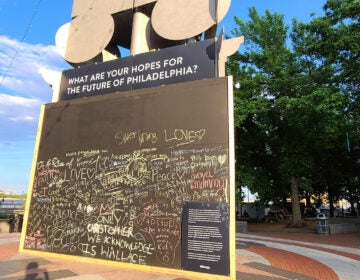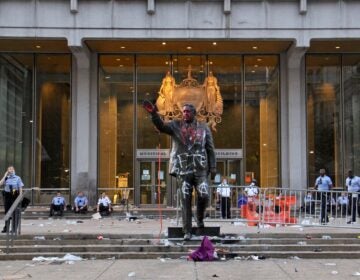‘Challenge to us, as black businesses, is how do we do business differently’
Owners of small coffeeshops gather to talk about building up businesses in black community rather than boycotting Starbucks and other chains.
Listen 4:16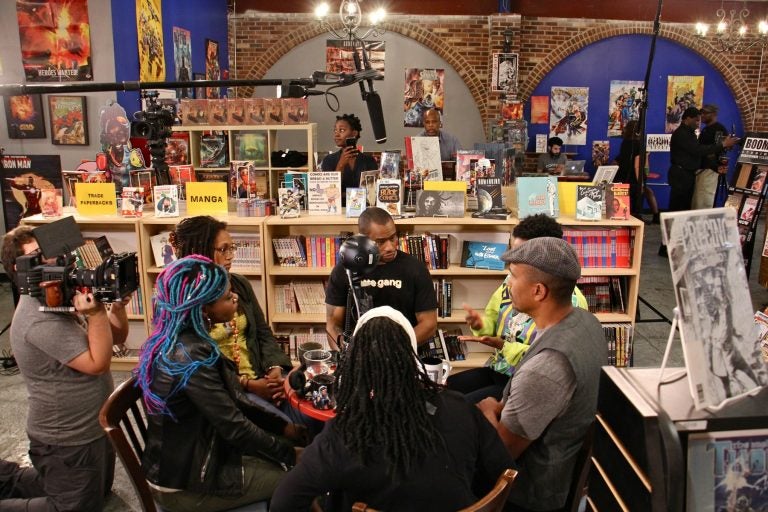
Black coffee shop owners gather for a live-streamed conversation about retail racism and supporting black businesses at Amalgam Comics and Coffeeshop in Kensington. Participating are (clockwise from left) Amalgam owner Ariell Johnson, owner of Franny Lou's Porch Blew Kind, activist Mark Lamont Hill, Shantrell P. Lewis of Shoppe Black, Keba Konte of Red Bay Coffee, and activist Pam Africa. (Emma Lee/WHYY)
As thousands of Starbucks stores closed Tuesday for anti-bias training, black coffeeshop owners in Philadelphia held a roundtable discussion about the importance of supporting black businesses in the community.
In the back of Amalgam Comics and Coffeehouse, event organizer Keba Konte, the founder of Red Bay Coffee, and Amalgam owner Ariell Johnson were joined by Marc Lamont Hill, owner of Uncle Bobbie’s Coffee and Books in Germantown, and Blew Kind, owner of Franny Lou’s Porch, in Kensington, to talk about the challenges of running a small coffeeshop.
Activist Pam Africa and Shantrell P. Lewis, co-founder of Shoppe Black, also took part in the discussion that touched on the arrest of two black men at a Center City Starbucks last month. That baseless arrest led to nationwide protests and the Tuesday training.
But Konte, who led the discussion, said the challenge is helping to build up smaller businesses, not boycotting larger ones.
“It’s not always about boycotting another corporate business,” said Konte. “It’s about developing talent, and it’s about developing business and entrepreneurs.”
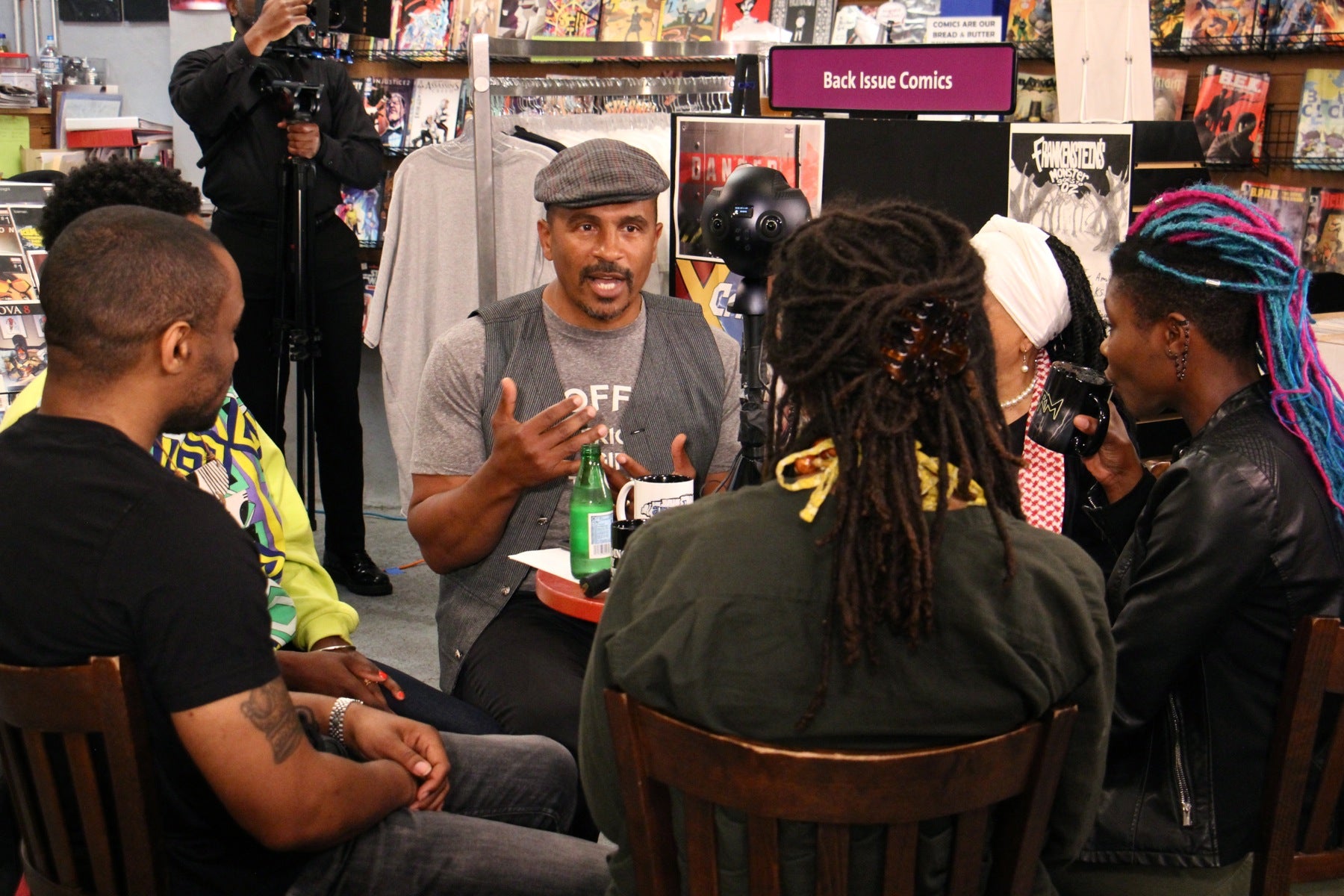
Those gathered around the table at Amalgam shared their philosophies and experiences as black entrepreneurs in a white-dominated business before a small audience and thousands watching a livestream via Essence magazine’s Facebook page.
The event was a chance to give a platform to black coffeeshops nationwide, Konte said.
Lewis, who co-founded Shoppe Black with her husband, said supporting black businesses shouldn’t be an issue that comes up only after a racist incident, when calls for boycotts lead hordes of customers to take their business to local shops. When calling for boycotts, she added, it’s important to remember that they employ black people too.
In April, two days after the arrest that led to Starbucks’ anti-bias training, Shoppe Black published a list of 47 black-owned coffeeshops across the nation. The list was meant to provide options for spaces where people can feel “empowered when they feel disempowered,” Lewis said, but it’s also about being proactive while being black in America.
“Every time somebody experiences some kind of racism, then we’re ready to react,” she said. “But if we’re more proactive on the front end — going into black-owned coffeehouses, supporting our own black businesses — we won’t even have to do that every time something happens in our community.”
Hill, who opened Uncle Bobbie’s in November, is also a professor at Temple University. He said bigger companies mainly focus on getting people in and out the door. Amenities such as music, art on the wall, and personable employees aren’t the priority that they are in local shops, he said.
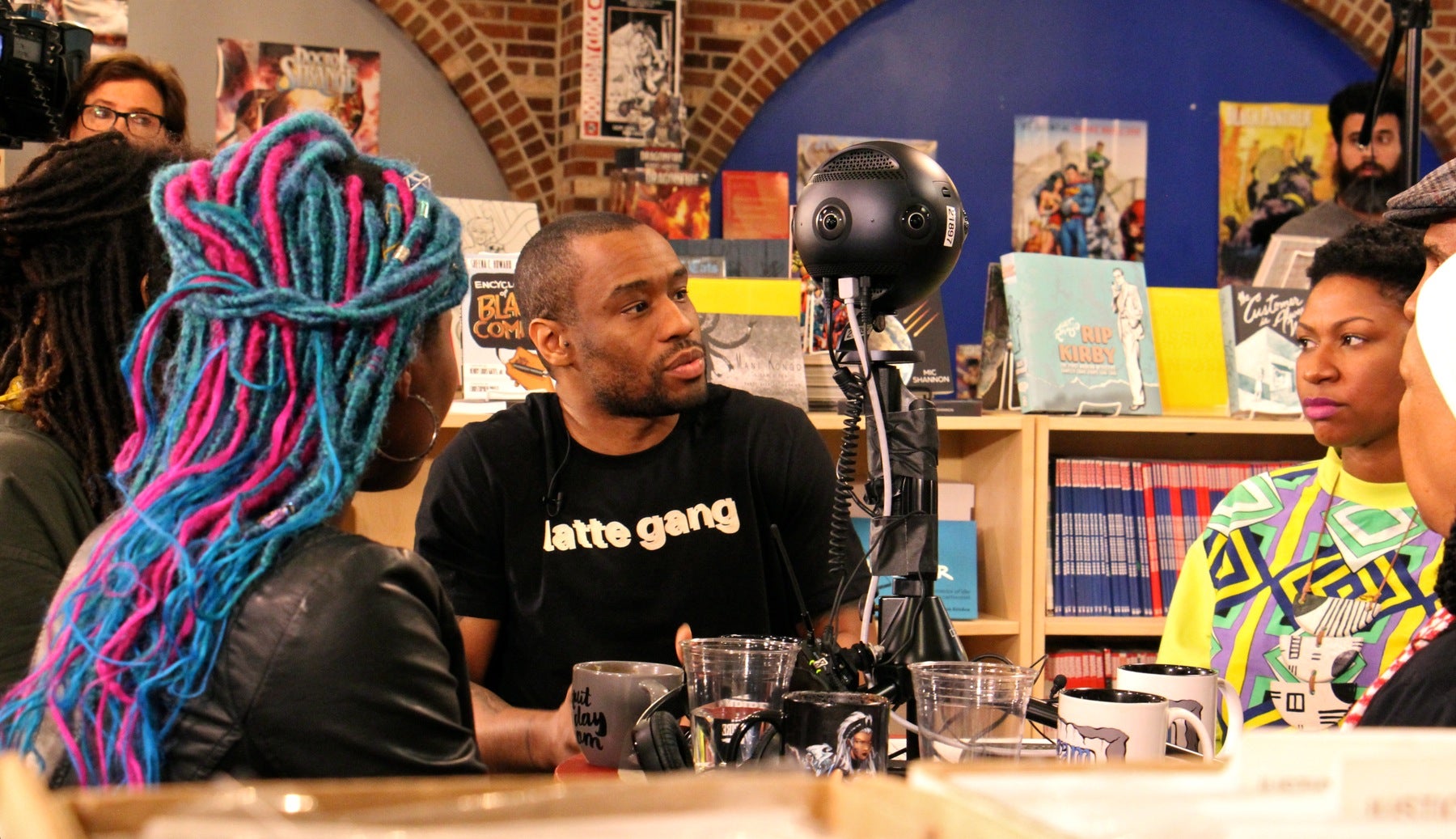
“It’s about that balance between having that good cultural experience and meeting your bottom line,” he said of that challenge. “So you can continue to be open, so people can have the good cultural experience.”
Kind, whose shop is blocks away from Amalgam, said black-owned coffeeshops don’t have to subscribe to the traditional business models or definitions of success. Though she doesn’t make a lot of money, Kind said she’s successful because “our culture is so strong, and people feel loved and valued.”
“If we continue the capitalist way of doing business, we are no better than our white business owners,” said Kind. “This whole country is rooted in racism and capitalism. They’re side by side. My challenge to us, as black businesses, is how do we do business differently.”
An advantage that larger businesses offer is convenience. Chains such as Starbucks and Dunkin’ Donuts are mainstays in neighborhoods throughout the country, while smaller shops, especially black-owned shops, tend to be out of the way. It takes a small effort to patronize them.
But Johnson said it’s worth that extra travel to make sure small shops offering a welcoming space to their communities remain open.
“In this world, money is the thing. So if you have it, then you do have the power,” she said. “So you need to decide how you’re using it.”
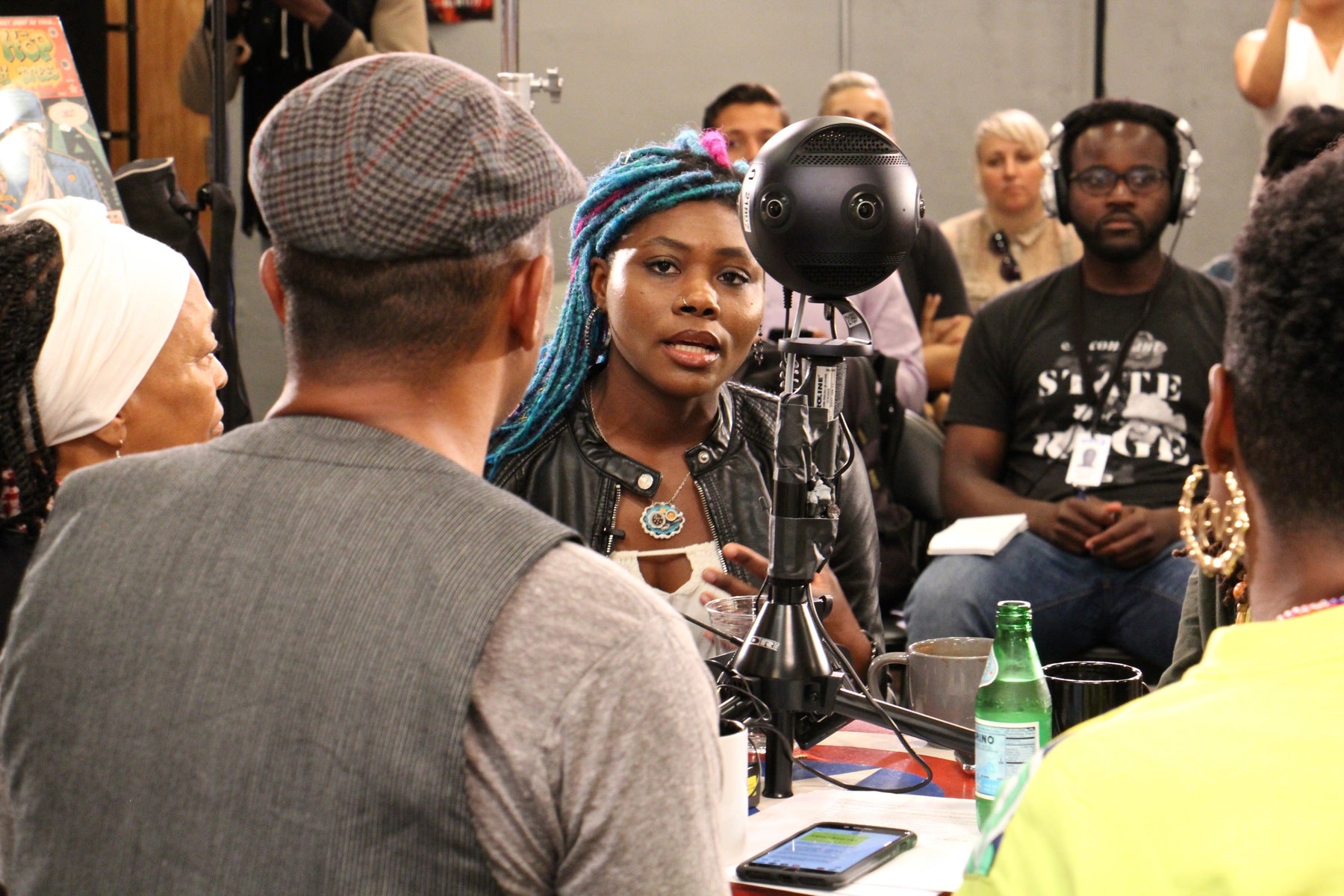
WHYY is your source for fact-based, in-depth journalism and information. As a nonprofit organization, we rely on financial support from readers like you. Please give today.



